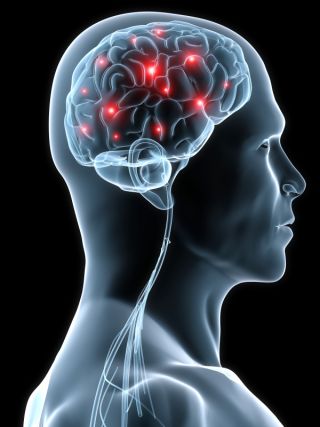Health
Five Facts About Brain Health
Your brain can get better with age if you adopt healthy habits.
Posted July 2, 2013
Thanks to medical advances, more of us will live to be 100 and beyond, but our peak brain performance comes, at best, at about half that age. These startling statistics beg the question: Are we destined to lose our ability to think for ourselves with years left to live? Five facts below should motivate you to adopt healthy brain habits to make your brain smarter—longer.

1. ELEVATE BRAIN HEALTH FITNESS WITH AGE
Conventional wisdom holds that intelligence is innate and that cognitive function undergoes unavoidable declines beginning in the mid-forties. New scientific evidence reveals that aging does not have to bring on deteriorating ability to think for yourself, and in fact, that you can get smarter with age. The key: You must remain mentally, physically and socially engaged. The majority of healthy individuals manifest potential for maintaining intellect, capacity for new learning, and consistency in decision-making throughout adulthood. Age alone does not have to hinder and impair your cognitive abilities needed to support independent living. If you are cognitively healthy, the worst decision you can make is to relegate your thinking to someone else. Once you disengage from complex thinking challenges, your underutilized mind declines.
2. ENGAGE YOUR BRAIN SMARTLY
Staying mentally active is one of the most protective factors against age-related cognitive decline. Recent research shows that cognitive abilities can be improved, strengthened, and rebuilt by adopting and maintaining challenging mental habits.
Boost your brain performance by:
- Synthesizing big ideas from information no matter the source—lectures, readings, emails, conversations, movies, etc.
- Absorbing new information needed to update and make financial decisions
- Reasoning through different choices based on incoming data and individual beliefs
- Consciously blocking out extraneous information to focus on the task at hand
- Engaging in novel and challenging mental tasks at every stage of life
- Approaching ambiguous situations with openness to changing ideas or directions
- Being an agent of change, not a criticizer
3. SELECT YOUR MENTAL ACTIVITIES STRATEGICALLY
Research reveals that all mental activities are not equally beneficial for brain health. Games such as crosswords, number puzzles, or online brain training programs may make you better at those specific games, but will not likely improve your higher-order thinking skills. These activities keep the mind busy; however they may not be aid us in achieving the gains we are seeking. To be beneficial for brain health, mental tasks should improve the cognitive skills needed to support independent life purposes such as decision-making, problem-solving, planning, and higher order reasoning.
4. CHANGE YOUR MIND ABOUT MEMORY
How much and how fast we can remember factoids decreases with age. But, memory is not the definition of smart. Don’t stress too much about small memory glitches experienced from time to time unless these memory problems are impacting your daily life success. Instead, think of the hundreds of things your brain recalled for you each day. The most robust form of memory is one that knits to-be-remembered ideas together into generalized meanings by utilizing rich life experience and accumulated knowledge. Compensate for information needed to-be-remembered by recording it on a smartphone, computer or putting pen to paper.
5. COMMIT TO HEALTHY HABITS
In addition to staying mentally engaged and socially involved, add other healthy lifestyle habits to enrich your brain’s health fitness.
- Make time for physically fitness: regular aerobic exercises (three times a week for 50 minutes) will improve memory function.
- Watch what you eat: what is good for the heart is good for the brain. Eating primarily vegetables, fruit, nuts, fish, legumes, olive oil with decreased intake of red meat, dairy products and sweets reduces cardiovascular disease which is a major factor that contributes to cognitive loss.
- Get a good night’s rest: Our brain needs approximately 8 hours to rest and consolidate learning of new information.
Your brain is your greatest asset and natural resource. Whether you are in your 20s, 40s or 80s, you cannot ignore your brain’s health another month, another day. You are the driver of your brain’s health. Will you steer your brain to advance it forward with cognitive growth or let it slip backwards into cognitive loss? The evidence is clear. Mind your brain and take immediate action to better your brain health fitness. Without brain health, we do not have health.


